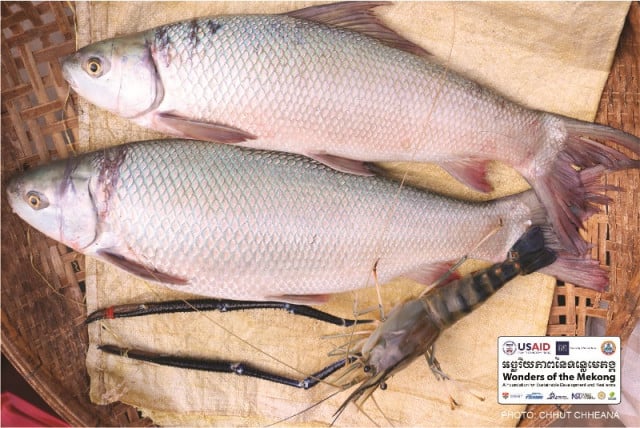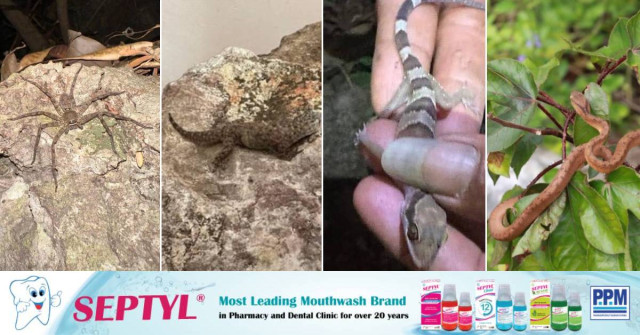Khmer scholar “Thunchey”: A riddle about three fish

- Chhut Chheana / USAID Wonders of the Mekong
- August 16, 2020 8:28 AM
In the will of one Khmer scholar named “Thunchey,” three fish species (small-scale mud carp, striped catfish and Wallago attu) were mentioned in the form of a riddle before giving to the king. The riddle was: “When eating small-scale mud carp, don’t waste its scales, when eating catfish don’t waste its gills, and when making Wallago’s head soup you need to add Sour-soup garcinia fruit”.
First, the phrase “When eating small-scale mud carp, don’t waste its scales” literally means that the small scale mud carp need its scales in order to survive. Fish scales function as an amour to protect its body. However, the hidden moral was to teach the king that scales represent people who surround leaders with virtue. Another hidden moral intended to show the king that if one wants their power in leadership to remain unchanged, one should value the “scales” – or place interests of the people before other factors, so to speak. People can vote for anyone to be their leader; therefore, they can also vote to withdraw power from the leader that they have appointed. As a note, the small-scale mud carp is a type of fish that has white scales and is scientifically called Cirrhinus microlepis. This fish has a maximum body length of up to 65cm. It lives in habitats like big rivers, the Tonle Sap Lake and floodplain areas.
Second, the phrase “When eating catfish, don’t waste its gills” refers to the gills located in the head of the fish. Gills function as a nose and are used to breathe oxygen. The first hidden moral aims to explain that “a kingdom depends heavily on its economy in order to independently survive.” The economy is one of the strongest aspects of each country, or we can say that a family is able to live in harmony because there is a woman who effectively collects and manages the wealth. The word “gills”, translated to “Srar Kei” in Khmer, involves switching vowels within words (for example: coffee, a loan word from English, becomes keefaw) and giving new meaning to Khmer words “Srei Kar” (Srei= woman, Kar= accumulate). If the woman accumulates misfortune, the family will live with sadness; however, if the woman works to accumulate fortune, the family would live in peace and harmony. The second hidden moral intention is that communication within a nation could grow stronger when leaders know how to communicate (understand the needs of people) from the root level up to the top, from the poor to the rich, from inside to outside the country. This action would bring new perspectives and advance technology to develop the country. In short, we can assume “When eating catfish, don’t waste its gills” means the head has to care about the gills so that the whole body could live.

Striped catfish. Photo: Chhut Chheana
It is noted that there are many types of catfish. They are snail eating catfish (Pangsius conchophilus), Helicophagus waandersii, Basa catfish (Pangasius bocourti), and Pangasius mekongensis. Here we would like to show the Striped catfish which is scientifically known as Pangasianodon hypophthalmus. It is a freshwater fish that inhabits the Mekong River basin and the Tonle Sap Lake. This type of fish is also often raised in ponds.
Third, the phrase “When making Wallago attu’s head soup, you need to add Sour-soup garcinia fruit” purely means whenever you make Wallago’s head soup you should add sour-soup garcinia to wash away the fishy smell. Why didn’t Thunchey choose other sour fruits to form a riddle besides Sour-soup garcinia? In Khmer language, Sour-soup garcinia is called “San dan,” which has very similar sound to “San darn” and the word San darn literally means “relatives” or “kin” in Khmer. The scholar wanted to use the word with a similar sound to make riddle.
In the underlying moral of this phrase, Thunchey wanted to tell the leaders in all generations that when you are in ruling power, you need to closely watch your relatives’ behavior because many of your relatives often exploit your power to threaten people with lower ranks. Your relatives may use your power as they please to fulfill their greed, leading to a bad image of the leader. The leaders need to use the “Sour-soup garcinia rule” to remove the unwanted fishy smell that their relatives have caused. This is the reason why Thunchey chose Sour-soup garcinia to be part of the last riddle before he passed away.

Wallago. Photo: Chhut Chheana
Wallago is a the type of sluggish fish that likes to live quietly and feast on much food. Mostly it hides in holes in river banks. Its scientific name is Wallago attu and it has a maximum body length of 240 cm.















